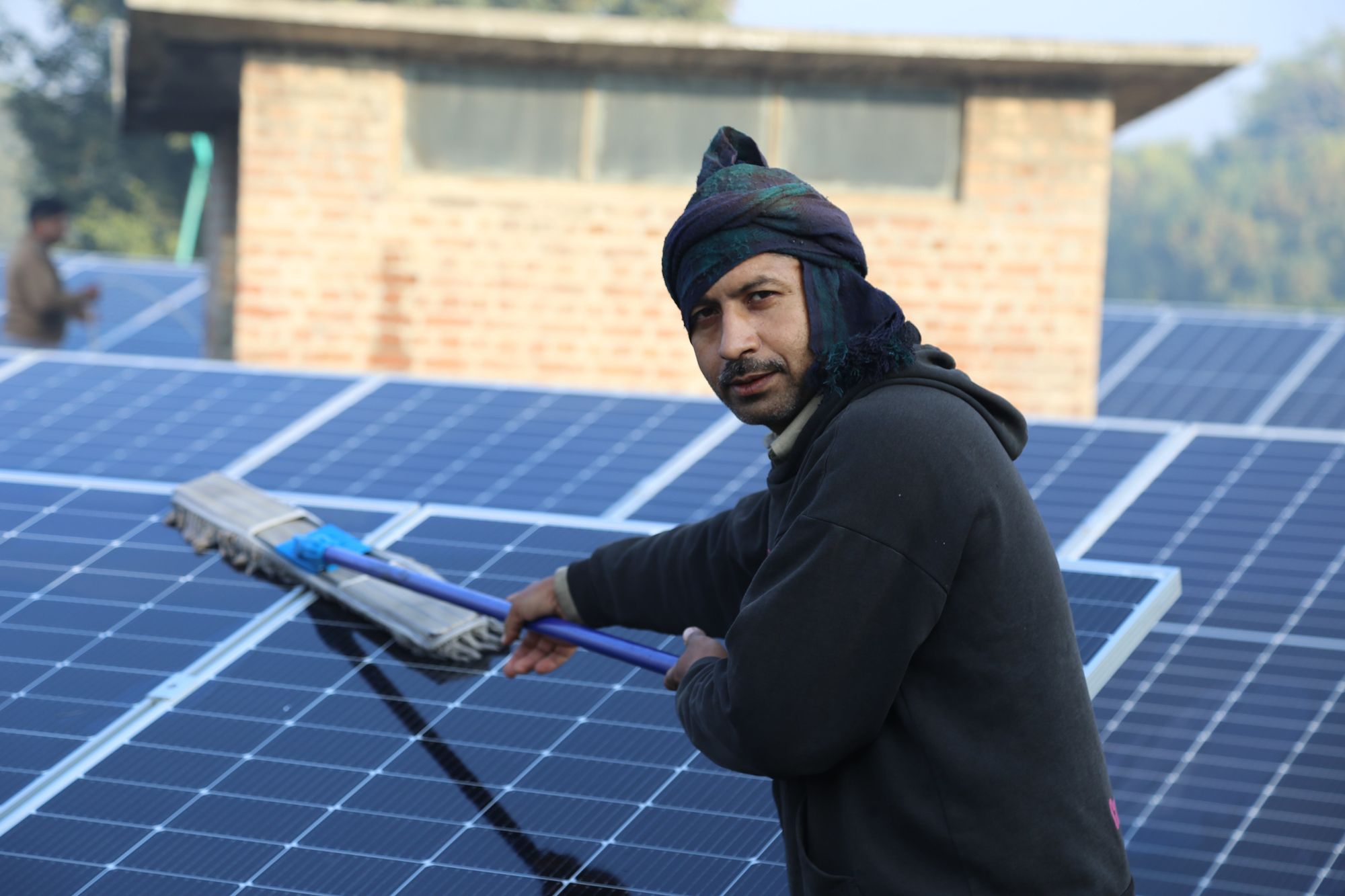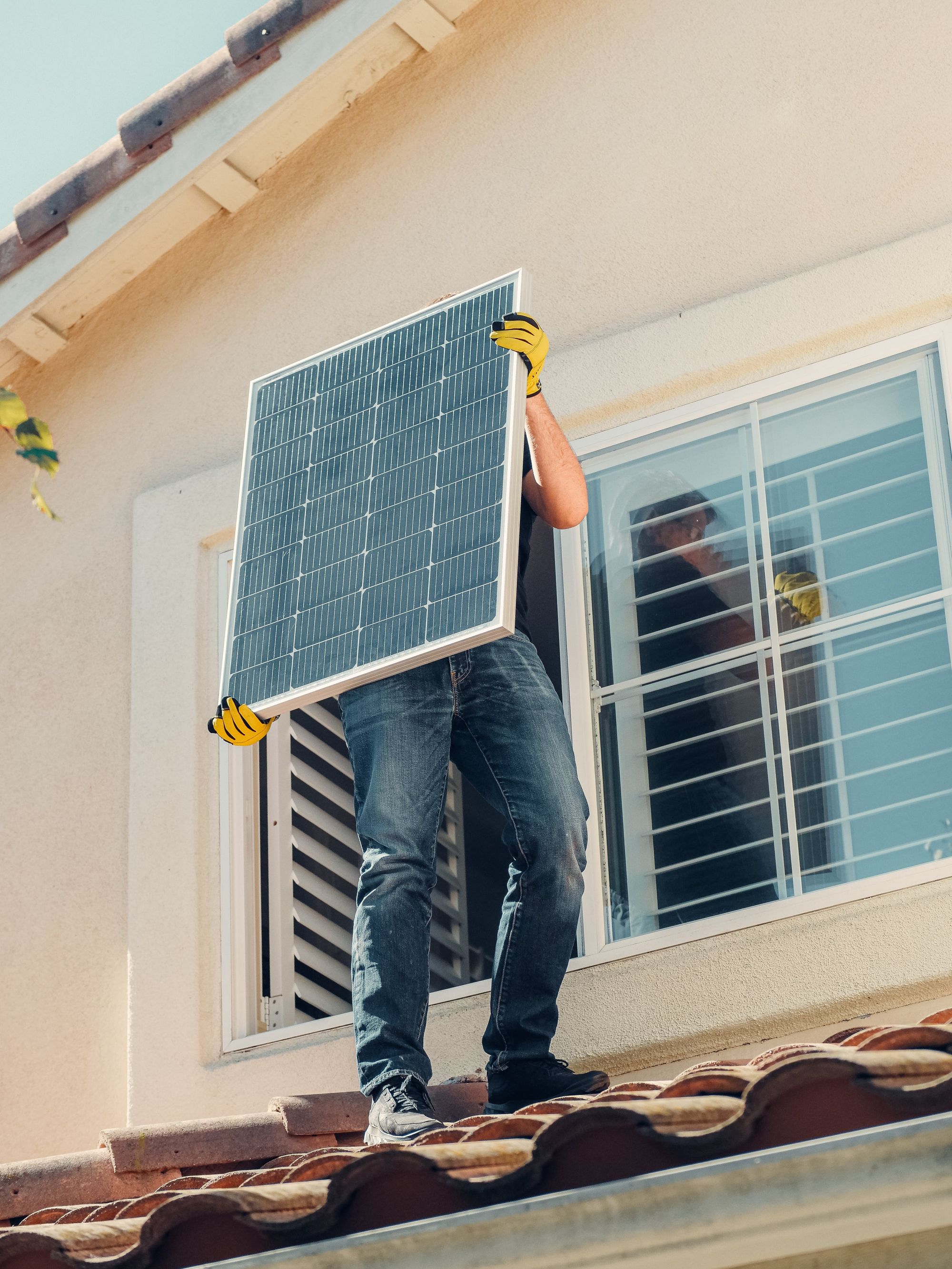The Complete Solar Panel Installation and Maintenance Guide: Cost, Schedule and Tips
Undoubtedly, the journey towards clean energy is exciting, yet it requires knowledge and commitment. Investing in a solar panel system can be a significant upfront expense, but the potential savings on energy bills and the positive environmental impact can make it a worthwhile investment.

As we strive to lead more sustainable lives, solar panels have emerged as an eco-friendly and cost-effective solution for our energy needs. These innovative systems harness the power of the sun, converting it into electricity we can use in our homes and businesses.
However, to truly reap the benefits of solar energy, it's essential to understand the installation and maintenance processes. Proper installation ensures your solar panels function optimally, while regular maintenance prolongs their lifespan and maximizes their efficiency.
This guide will delve into these crucial aspects, providing insights into how to install solar panels correctly, how to recognize when they need maintenance, and how to properly care for them in different seasons.
How to Go About Solar Panel Installation
Solar panel installation is a meticulous process that requires careful planning and accurate execution. Here's your step-by-step guide to ensure a successful solar panels installation.
1: Site Evaluation and Energy Use Analysis
Before the installation, a professional will conduct a site evaluation. They'll assess your property's suitability for solar panels, considering factors such as roof condition, shading, and orientation. They'll also analyze your energy consumption to determine the ideal system size.
2: System Design and Permitting
After the assessment, the installer will design a solar system tailored to your needs. They'll then obtain necessary permits from local authorities, adhering to local and national regulations for solar panels installation.
3: Installation
The actual installation begins with preparing the roof and ensuring its stability. The team then installs racking to hold the panels, ensures it's properly angled for optimal sunlight exposure, and secures the solar panels onto the racks. They'll then connect the system to an inverter, which converts the solar energy into usable electricity
4: Inspection and Commissioning
Once installed, the system needs to be inspected to ensure it complies with regulations. After successful inspection, the system is commissioned, and you can start generating your own solar power.
Remember, a professional solar panels installation not only guarantees the efficiency of your system but also ensures its longevity.

When Does Your Solar Panel Need Maintenance?
Solar panels are designed to be durable and require little maintenance. However, like any technology, they may experience issues that could affect their performance. Recognizing these signs early can help maintain the efficiency of your solar system.
Declining Energy Output: One of the most obvious signs your solar panels need maintenance is a noticeable decrease in energy output. Regularly monitoring your system's performance can help identify any sudden or gradual drops in power production.
Physical Damage: Visual inspection can reveal issues like cracks, discoloration, or warping on the solar panels. Similarly, loose, hanging, or damaged wires can also indicate that your system needs attention.
Inverter Display Errors: The inverter's display provides valuable information about your system's performance. Error messages or red lights often signal a problem that requires immediate attention.
Age of the Panels: Older solar panels may require more frequent checks. As they age, their efficiency can decrease, and they may need more care.
Remember, regular maintenance checks are crucial to keep your solar panels performing optimally. If you notice any of these signs, it might be time to call in a professional for a comprehensive solar panel maintenance check.
How often should you maintain your Solar Panel
Solar panels are renowned for their durability and low maintenance requirements, but periodic checks and care are still essential to ensure they continue operating at peak efficiency.
General Maintenance: As a rule of thumb, general maintenance checks should be done at least once a year. These checks involve a thorough inspection of the panels, racking system, and electrical connections.
Environmental Factors: The frequency of maintenance can increase depending on your local environment. For instance, regions with high levels of dust or pollen might require more frequent cleaning to ensure panels stay clear and efficient. Similarly, areas prone to severe weather might necessitate additional checks for potential weather-related damage.
System Performance: Regularly monitoring your system's performance can help identify any issues that need addressing between scheduled maintenance. A drop in energy output, for instance, could indicate a problem that needs immediate attention.
While these guidelines can help you understand typical maintenance needs, remember that every solar panel system is unique. Working with a solar professional can help you develop a maintenance schedule tailored to your specific circumstances and ensure your system remains in optimal condition.

Maintaining Solar Panels in Winter
Maintaining solar panels during winter can pose some challenges due to shorter daylight hours, snowfall, and colder temperatures. However, with the right approach, your panels can continue to operate efficiently.
Snow Removal
Snow accumulation on your panels can hinder their performance. Use a roof rake with a soft brush to gently remove snow, ensuring not to scratch the panels. Always prioritize safety and avoid climbing on roofs during icy conditions.
Monitor Performance
Shorter daylight hours and potential cloud cover mean your system might produce less energy. Regular monitoring helps identify any significant drops in output that might indicate a problem.
Pre-winter Check
Before winter sets in, consider getting a professional maintenance check to ensure your system is in top shape. They can identify and rectify any issues that might be exacerbated by winter conditions.
Angle Adjustment
If your panels are adjustable, tilting them to a steeper angle can help maximize sunlight exposure and facilitate snow sliding off.
Remember, while winter maintenance can be a bit more labor-intensive, your solar panels can still generate substantial energy during these colder months with the appropriate care and attention.
Cost of Solar Panel Installation and Maintenance
The cost of installing and maintaining a solar panel system can vary depending on numerous factors. The following overview will provide a general idea of the costs involved, but remember that every situation is unique.
Installation Costs
The average cost of installing a solar panel system can range from $15,000 to $25,000, after federal tax credits. This price includes the cost of the panels, inverter, other materials, and labor. Factors influencing installation costs include the size of the system (number of panels), your location, the type of panels, the configuration of your roof, and the company you choose for installation.
Maintenance Costs
Solar panels require minimal maintenance, keeping ongoing costs relatively low. Annual checks by a professional can range from $150 to $300. Additional cleaning, if required due to your location (e.g., dusty areas), can cost around $10-$20 per panel. Repairs, if necessary, add to these costs but are generally infrequent.
Factors Influencing Costs
Several factors can influence both installation and maintenance costs. These include the quality of materials, local labor rates, the complexity of installation, the frequency of maintenance, and the need for any repairs or replacements.
Investing in a solar panel system can be a significant upfront expense, but the potential savings on energy bills and the positive environmental impact can make it a worthwhile investment. Always seek multiple quotes and consider all costs to make the most informed decision.

Frequently Asked Questions
1. Are solar panels easy to maintain?
Yes, solar panels are generally easy to maintain. They have no moving parts, reducing the possibility of mechanical failures. An annual professional inspection combined with occasional cleaning to remove dust, debris, or snow is typically sufficient for optimal performance.
2. Can you monitor the health of your solar panels?
Absolutely. Many solar panel systems come with monitoring software that allows you to track their performance in real-time. A significant drop in energy production could indicate an issue requiring maintenance or repair.
3. How often should solar panels be cleaned?
The frequency of cleaning depends on your location and weather conditions. In most cases, natural rainfall is sufficient to keep the panels clean. However, in dusty areas or places with high pollen levels, panels may need cleaning 2-4 times a year.
4. What happens if a solar panel gets damaged?
If a solar panel gets damaged, its performance may drop. Often, individual panels can be replaced without needing to replace the entire system. It's best to have a professional assess the damage and determine the appropriate course of action.
5. Do solar panels require more maintenance as they age?
Solar panels are designed to last for decades, and their maintenance requirements don't significantly increase with age. However, components like inverters may need to be replaced after 10-15 years. Regular annual checks will help identify any age-related issues early.
6. Can I perform solar panel maintenance myself?
While you can do basic tasks like cleaning, it's recommended to have a professional handle the annual maintenance check. They can safely and effectively inspect and service your system, ensuring it continues to operate at peak performance.
In conclusion, solar panel installation and maintenance are significant aspects to consider for homeowners looking to transition to renewable energy. While installation costs can be considerable, the long-term savings on energy bills and the positive environmental impact can make it a worthwhile investment.
Solar panels require minimal maintenance, often just an annual check-up and occasional cleaning, ensuring their longevity and efficiency. By monitoring their performance regularly, issues can be identified and addressed promptly.
By investing in solar panels and maintaining them correctly, you can enjoy the benefits of this sustainable, cost-effective energy solution and contribute to a greener future.

